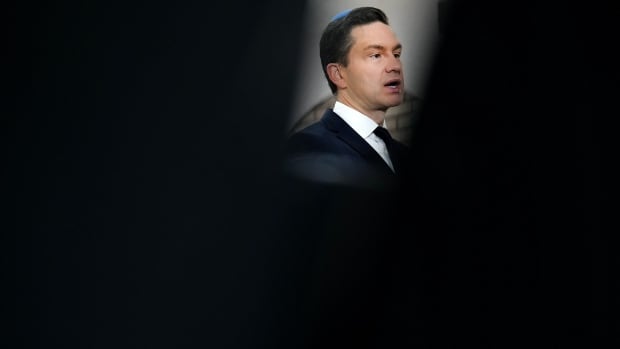
After his party supported a motion calling for a boost to Canada’s universal retirement pension, Conservative Leader Pierre Poilievre wouldn’t say whether he’d follow through if he becomes prime minister.
Earlier this month, Bloc Québécois Leader Yves-François Blanchet tabled a motion to support C-319, a private member’s bill that would hike Old Age Security (OAS) payouts for seniors between the ages of 65 and 74 by 10 per cent.
The motion ultimately passed with the support of the Conservatives, NDP, Greens and five Liberal backbenchers. Most Liberal MPs voted against it.
But Poilievre, who polls suggest is poised to win a massive majority government, was non-committal Thursday when asked whether his party would move forward with the increase if elected.
“We’re of the view that seniors need more purchasing power and that’s what we signalled with that vote. There are other ways to do it, though,” he said during a news conference in Toronto.
Poilievre floated getting rid of the Liberals’ carbon tax and lowering income tax to help increase seniors’ retirement income.
“As we develop our platform, we will bring forward a low tax plan that allows seniors to have more powerful pensions and to bring home affordable prices that will allow them to have a dignified retirement,” he said.
A week after Conservatives supported calls to boost Old Age Security payments for seniors under 75, Conservative Leader Pierre Poilievre suggested he’s not absolutely committed to including the increase in his party’s next election platform.
Benefits for the elderly, including OAS and the Guaranteed Income Supplement (GIS) for low-income seniors, are the largest and fastest-growing part of the federal budget.
The Parliamentary Budget Officer (PBO) has said the Bloc’s proposed OAS increase would cost $16 billion over the next five years — spending that would add to a national debt that is now over $1.2 trillion. The cost of financing all that debt comes to about $54 billion this year.
Liberal House leader Karina Gould said cabinet wouldn’t support the Bloc’s motion because it was attempting to push the government to grant a royal recommendation permitting higher spending.
“It is not appropriate for an opposition day motion to set the precedent of getting a royal recommendation,” Gould told reporters on Parliament Hill earlier this month.
The government has instead been touting dental care and the forthcoming pharmacare program as proof they are committed to helping seniors.
The Bloc needs the Liberals to grant a “royal recommendation” for their proposed OAS legislation because a private member’s bill can’t force the government to spend money without cabinet approval.
Increasing the OAS is one of two key demands Blanchet’s Bloc has set as conditions for supporting Prime Minister Justin Trudeau’s minority Liberal government. It also wants stronger trade protections for supply-managed farm sectors.
On Wednesday, he said the Liberal government has only days left to secure his party’s support in the House.
Blanchet has said seniors deserve “a significant increase to their purchasing power because they literally built Quebec and the prosperity we all have and enjoy today.”
Generation Squeeze, an advocacy group for young people, has said that if the Bloc gets its way, “younger Canadians will be on the hook to pay even more taxes for boomers’ OAS benefits.”
